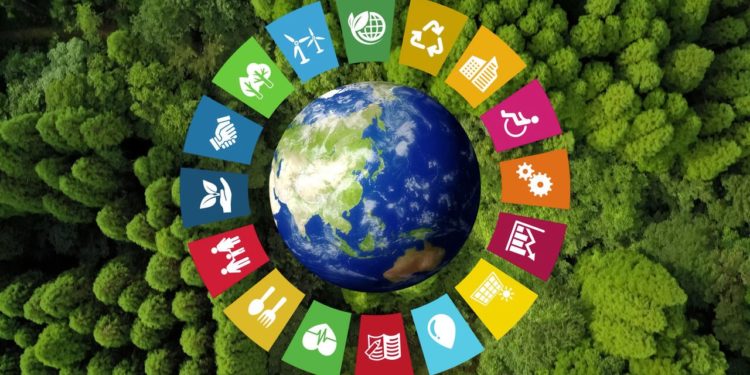Sustainable development in Kenya is an approach that seeks to meet the current needs of the population without compromising the ability of future generations to meet their own needs. This approach integrates economic, social, and environmental considerations to ensure a holistic and long-term development strategy to address global challenges such as poverty, inequality, climate change, and environmental degradation.
Economic growth in Kenya focuses on fostering inclusive progress that provides opportunities for all, reduces inequalities, and ensures that economic benefits are shared broadly. The country’s Vision 2030 blueprint aims to transform Kenya into a newly industrializing, middle-income nation.
Key sectors such as agriculture, manufacturing, and technology are being prioritized to drive economic development. Efforts to promote responsible consumption and production, alongside infrastructural improvements, are central to these initiatives.
Environmental protection is integral to sustainable development efforts in Kenya. The country is committed to responsible management of natural resources and mitigation of environmental impacts. Strategies include combating climate change through the adoption of renewable energy sources, protecting ecosystems, and promoting biodiversity. Additionally, the government has been at the forefront of promoting initiatives such as carbon credits, the government aims at reducing climate change through this approach.
Effective governance, strong institutions, and the rule of law are essential for implementing sustainable development policies in Kenya. Transparency, accountability, and inclusive decision-making processes ensure that development benefits all segments of society. Efforts to enhance governance structures and fight corruption are ongoing to create a conducive environment for sustainable development.
In effective governance, the government has taken several approaches, such as adopting an equalization fund to cater to Kenyans in marginalized areas. Additionally, the government has made efforts to promote gender balance by providing women’s representative positions in Parliament and appointing women to positions traditionally viewed as “men’s positions,” such as in the army.
Sustainable development in Kenya requires collective efforts from the government, private sector, and civil society to create a resilient and equitable future for all Kenyans. The pursuit of sustainable development ensures that Kenya not only achieves its current development goals but also safeguards the needs of future generations.


















